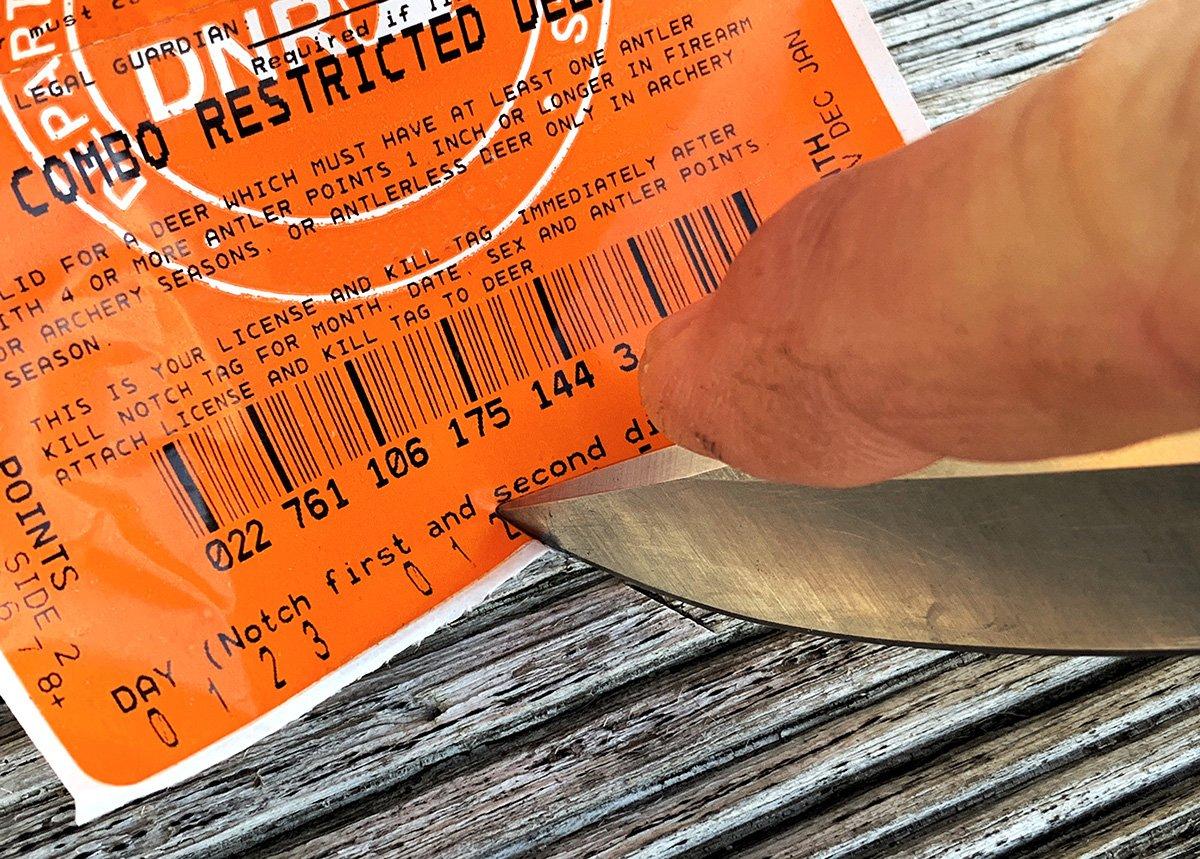Wounding and losing a deer is rough, but is it a reason to end your hunting season?
If you wound a deer and don't recover it, does that mean you should fill your tag anyway and quit hunting? A growing number of hunters seem to think it's the right thing to do - but is it really? It's not a simple thing to answer.
It Happens to Everyone ... Eventually
Like every serious deer hunter eventually will, I found myself in this quandary in 2019. One afternoon, I used a climber and quietly scooted up a tree. A couple hours into the hunt, a buck I've been hunting for several seasons, nicknamed Tanker, materialized right in front of me. I drew back, settled my 30-yard pin, and loosed the arrow. But the shot was off, and the arrow struck the deer high in the hindquarter, getting only about 2 inches of penetration. I was filming my hunt, and am pretty sure the arrow deflected off a small limb. Either way, the result was the same. There was no blood and no deer, despite searching hundreds of acres for days. My gut said Tanker still roams the earth, so I continued hunting.
Skip a few beats to mid-November. It was opening afternoon of the Kentucky rifle season. A big one stepped out, and I put the crosshairs on its shoulder. I pulled the trigger and the deer took off. It didn't bleed for the first 80 yards, and I followed blood for another 100 before it trickled to nothing. I searched on hands and knees, glassed fields, checked cameras and watched the skies for buzzards. A week later, I received a trail camera photo of the deer. It lived.
The symbolic act of notching a tag without venison to show for it might sound noble, but we can't make bacon and burgers out of it.
The worst feeling for a hunter is ignited when you make a bad shot on a deer and don't recover it. No true hunter wants that. We hope for quick, clean kills, and practice year-around. But that's not always what we get.
Many Deer Survive Bad Hits
At least one of the aforementioned bad hits proved that some deer live through being shot. Upon skinning other deer I've killed, some of them sported old wounds, lodged bullets, trapped broadheads, and arrow fragments. It's more common than we sometimes realize for deer to live through serious injuries.
Unless a law requires it or you personally feel compelled to do it, there's rarely a reason to notch a tag on a lost deer, especially if you suspect it survived. After all, we're out there to fill a freezer. The symbolic act of notching a tag without venison to show for it might sound noble, but we can't make bacon and burgers out of it.
I even discussed my 2019 misfortune as it happened with a local game warden. Know what he encouraged me — and others who experience this — to do? Do due diligence to find the deer, but get back out there and keep hunting if it isn't recovered.
Advice Varies
Interestingly, regulations on tagging unrecovered game aren't unheard of, especially where other species of big game are concerned. In some Alaska hunting units, some hunters are required to notch their elk or bear tag if they draw blood, whether they recover the animal or not. The Alaska Hunting Regulations Guide states, A person who has wounded game should make every legal effort to retrieve and salvage that game. Animals disturbed while hunting do not count against your bag limit; however, bears wounded in Units 1-5, and 8, and elk wounded in Unit 8 do count toward your bag limit for the regulatory year.
I don't know if there are similar laws in other states, but maybe so. And while it isn't law, most outfitters have a contractual rule stating your paid-for hunt is over if you draw blood on a deer.
Still, this topic is not black and white. I've heard many stories of hunters drawing blood, not finding the deer, and notching their tag anyway. I think that's perfectly OK, if you feel compelled to do it.
Judgement Calls
From a management perspective, most state agencies account for a percentage of fatally wounded but unrecovered deer in their annual harvest goals. It factors into management decisions the same as vehicle collisions, disease, predation, etc.
Where this truly matters is on the local level. It might help keep the population in balance if you go ahead and notch the tag — or just stop hunting the property — if several other deer have already been taken there. We apply personal quotas to the private properties my family, friends and I manage. Once a certain number of bucks and does have been taken, we shut the hunting down for the season on that tract. Those with remaining tags hunt elsewhere. Generally, we apply wounded deer to that figure as well. Of course, it's easier to make that call if you have multiple places to hunt. It isn't as simple when you're pigeon-holed into a single parcel of land.
I can't say you should or shouldn't notch your tag on unrecovered wounded game. The best you can do is analyze every situation with a level head and clear heart. You do you, and as long as you have followed the laws and rules and feel good about the ethical decision made, that's all that really matters.
Don't Miss: 8 Weird and Wacky Hunting Laws
Check out more stories, videos and educational how-to's on deer hunting.








